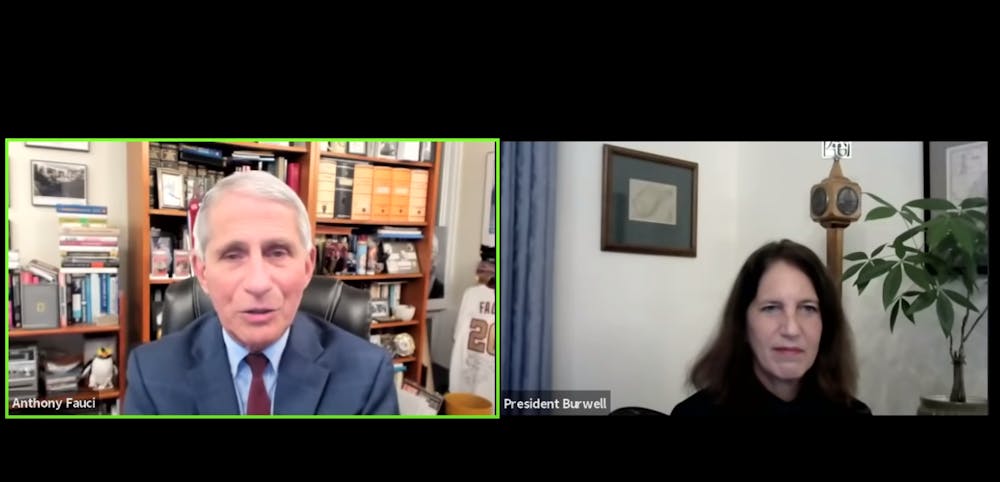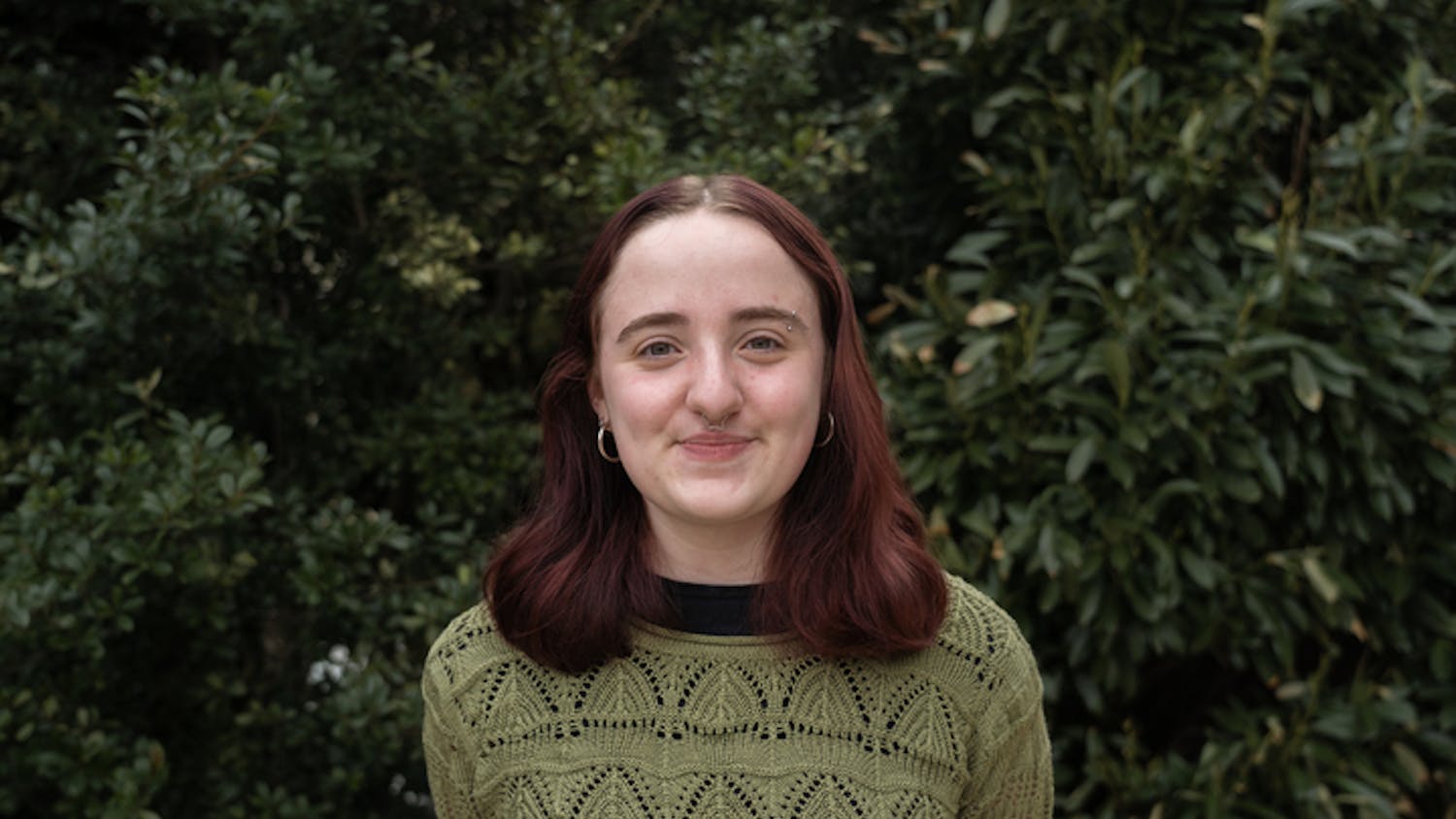Dr. Anthony Fauci, director of the National Institute of Allergy and Infectious Diseases, spoke about a lack of trust in science and the evolving nature of the coronavirus pandemic at a virtual event hosted by the Kennedy Political Union on Tuesday.
Fauci, one of the key members of the White House Coronavirus Task Force, answered student questions regarding the pandemic in a conversation with American University President Sylvia Burwell.
“Okay country, maybe 50 percent of you hate me because you think I’m trying to destroy the country, but do me a favor: Listen to me for like six weeks or so and do the things I say, and you will see the level of infection go down,” Fauci said. “If we don’t do what we need to in the fall and winter, we could have 300,000 to 400,000 COVID-19 deaths.”
Fauci addressed President Donald Trump’s recent COVID-19 infection, explaining how decisions are made regarding the use of experimental drugs.
Fauci also discussed how the coronavirus is transmitted and how the understanding of transmission methods has evolved from the early months of the pandemic.
“In fact, now we know it can be transmitted by aerosol … [the virus] can hang around in the air for multiple seconds or even minutes,” Fauci said, stressing the continued wearing of masks.
Fauci described the path to re-opening businesses and schools as a gradual process starting in early spring. He said that the next steps depend on the efficacy and safety of the vaccines currently under development, which will begin to come apparent over the next two or three months.
“I think it is much more likely, as we get into the late summer and early fall, that we will have a combination of public health measures, plus a really good chunk of the population vaccinated, that the level of the virus will be so low that we can start talking about in-person classes being the rule as opposed to the exception,” Fauci said.
Fauci said that people must continue to follow public health guidance, including by wearing a mask, washing one’s hands, social distancing and, if possible, interacting with people primarily outdoors. He dismissed any accounts of groups claiming that “he is trying to shut down the country.” Instead, he recommends a careful opening of the economy by continuing to observe public health measures.
After a student raised a concern about how science is devalued today, Fauci reassured them by pointing out the depth and time that goes into the field.
“Science, in general, is such an extraordinary and exciting field that as much as people try to devalue it, they are going to lose that one,” Fauci said. “It is too exciting and too contributory.”
Fauci touched upon how the virus disproportionately impacts communities of color and those at lower socioeconomic levels. He said that these groups are more likely to be essential workers, which requires them to be in continuous contact with other people. If people in those communities get infected, they tend to have a higher chance of a worse outcome, including hospitalization, intensive care or death.
Communities must come together as one and address these underlying issues, Fauci said.
“If anything should come out of this outbreak, it should be the societal commitment that enough is enough; we have to do things that will overcome these social determinants of health,” Fauci said. “Otherwise, the next crisis will be the same story.”





